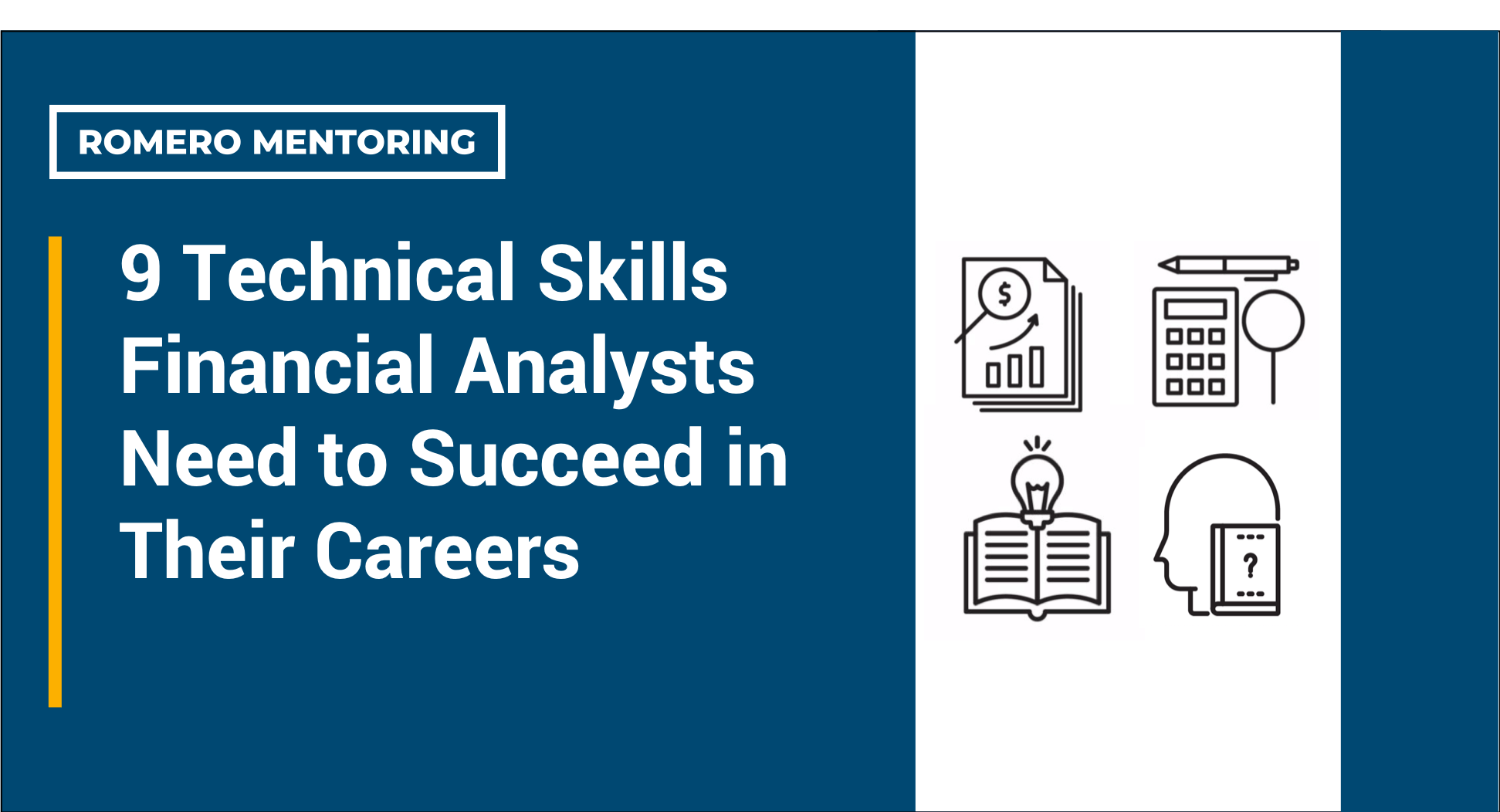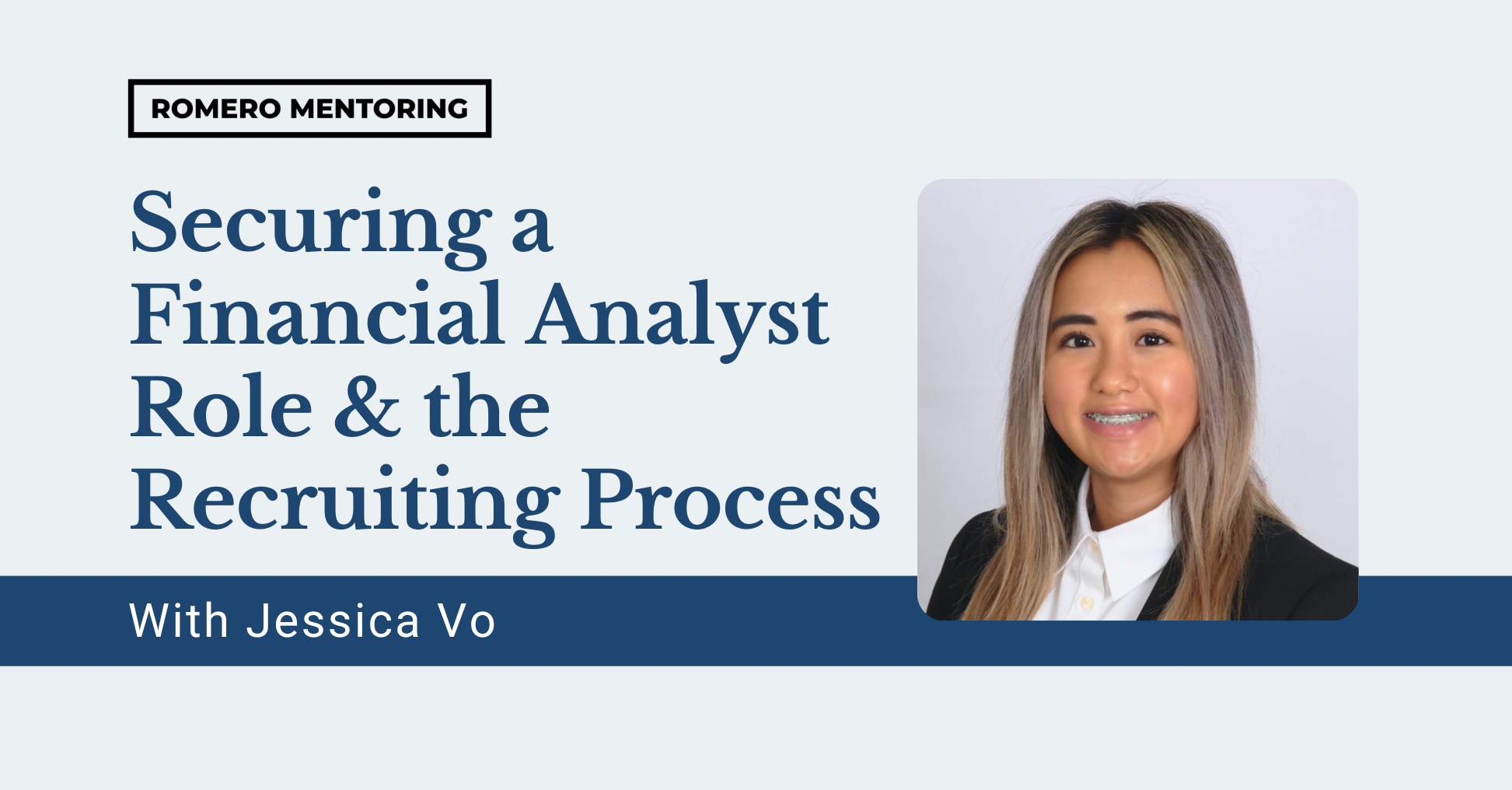The financial services industry is well-known as one of the most competitive fields, and within that field, the role of a financial analyst is one of the most coveted career paths.
Financial analysts examine financial data and use their findings to help companies make business decisions, typically dealing with finance and investments.
The Key Financial Analyst Skills to Master
Financial analysts need to be well-rounded with technical, soft, mathematics, and interpersonal skills.
When you’re looking for your next step in your professional financial career, make sure to have a good understanding of these 9 essential skills to become a skilled financial analyst.
1. Accounting
Accounting skills are paramount to your financial analyst career. Accounting is the language of business. Knowing how to read financial statements reports to work effectively in finance is essential.
You must be able to interpret financial documents such as balance sheets, cash flows, and income statements.
General accounting skills include understanding GAAP accounting processes and regulations as well as having knowledge of accounting techniques and the ability to mathematically solve the processes.
2. Reading SEC filings
As one of the most reliable sources of information, SEC websites contain public information that is crucial for constructing valuation models and being able to examine the true financial performance of any public firm.
Financial analysts should be able to read SEC filings by using accounting and industry knowledge, as financial statements are included on 10K and 10Q reports in addition to other important information about the firms.
Important sections to pay close attention to in the 10K report include Business Overview, Management Discussion & Analysis and Financial Statements Reports.
3. Corporate Finance
Corporate finance deals with how corporations make decisions regarding funding sources, capital structuring, and investments.
A corporation may decide to issue equity in the forms of share or issue debt in the form of bonds to finance their expansion plans.
Its primary concern is to maximize shareholder value through long-term and short-term financial planning.
Financial analysts should possess corporate finance knowledge, by which they would understand the firm’s capital structure and investments. With such knowledge, financial analysts would be able to have a deeper understanding of the company and its budgeting decisions.
4. Financial Modeling
Financial modeling is a digital representation of a company’s financial performance.
It typically entails forecasting the business’s income statement, balance sheet, cash flow statement and other supporting schedules to help users make decisions on how to deploy capital.
Investment decisions depend on both historical and expected future performances of a business.
5. Corporate Valuation
Financial analysts need to understand different valuation methodologies to arrive to a reasonable and fair value of the business in order to make financing and investment decisions.
Corporate valuation is the process of determining the current worth of a business using objective measures like discounted cash flow analysis, comparable company analysis, precedent transaction, merger consequence and leveraged buyout analysis.
6. Technical Analysis
Technical analysis is the forecast or prediction of future financial price movements based on analysis of past price movements. It can help investors anticipate what is “likely” to happen to prices over time.
By understanding support and resistance levels, investors could anticipate the possible moving directions of future prices.
7. Leveraged Buyout Modeling
Leveraged buyout (“LBO”) modeling is a sophisticated model that involves the acquisition of a public or private company using large amounts of debt and small amount of equity as its main source of financing.
LBO models are typical made by private equity associates and investment banking analyst. The leveraged buyout model can be used to calculate the cash flows generated by the target company during the investment period and anticipate the “levered” returns for financial buyers.
8. Mergers & Acquisitions Analysis
Mergers and acquisitions (“M&A”) modeling helps financial analyst assess the impact of a merger or an acquisition deal which improves the company’s ability to generate revenue by improving its market share, increasing economies of scale, reducing cost of developing new business activity, and gaining key management level talent.
The M&A analysis helps to determine the acquiring price, the structuring of the deal, and to evaluate the impact of this deal (accretion/dilution).
9. Excel
Excel is an essential skill to possess as a financial analyst. It is the foundation of all financial models. Taking the time to become familiarized with Excel shortcuts has helped me enormously – my speed on constructing models increased over 3 times. Efficiency is the key to succeeding in the financial services industry.
Conclusion
As you might have discovered, most of the skills listed above are correlated with each other. In other words, required skills for financial analysts are like an integrated ability. By exercising one skill, your overall ability as a financial analyst will increase. Your efforts in improving such ability will lead to “accretion” of yourself and the success in your career as a financial analyst.
Romero Mentoring’s Analyst Prep Program

In just 15-weeks, you can become a world-class finance professional. The Romero Mentoring Analyst Prep Program is an all-inclusive internship, mentorship, and training experience like no other. Learn the in-depth principles of finance and apply what you learn through an extensive internship led by a finance professional with over 12 years of experience. Learn more here.
The Analyst Prep Program teaches the technical and practical skills that investment banks, hedge funds, and private equity & consulting firms look for in a candidate. Students begin with little to no technical skills and develop into fully prepared professionals who can perform as first-year analysts from day one
About Romero Mentoring
Since 2016, Romero Mentoring investment banking training and internship programs have been delivering career mentoring to job seekers, professionals, and college students pursuing careers in finance. We’ve helped hundreds of students start their careers on Wall Street through our Analyst Prep and Associate Programs. Our graduates work at top-bulge bracket banks and consulting firms, including Goldman Sachs, JP Morgan, McKinsey, and many more.
In just 15-weeks you can become a world-class finance professional with our fully immersive internship and Investment Banking Training Programs.





